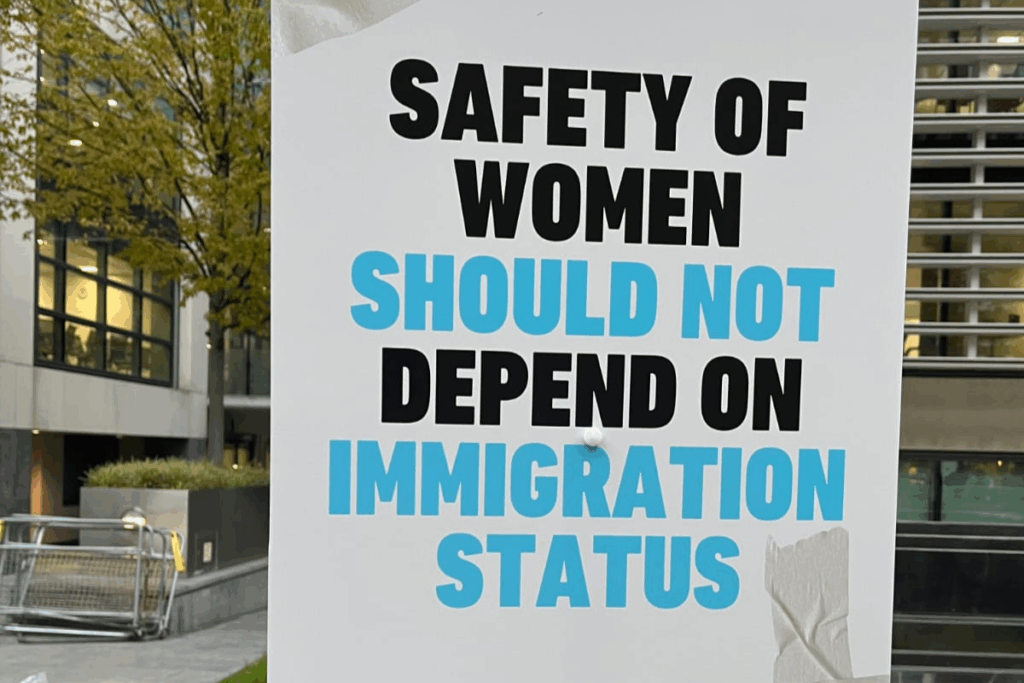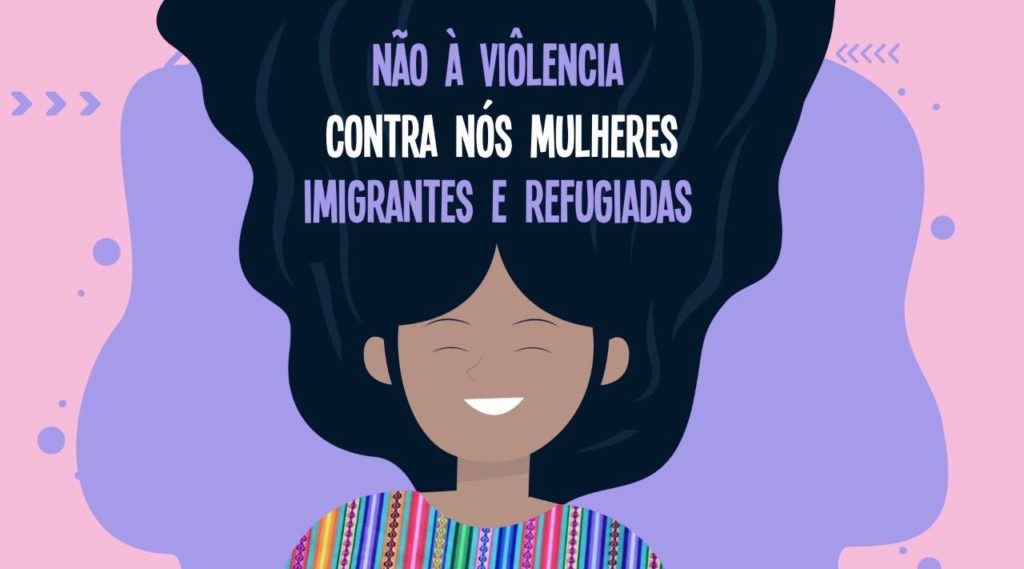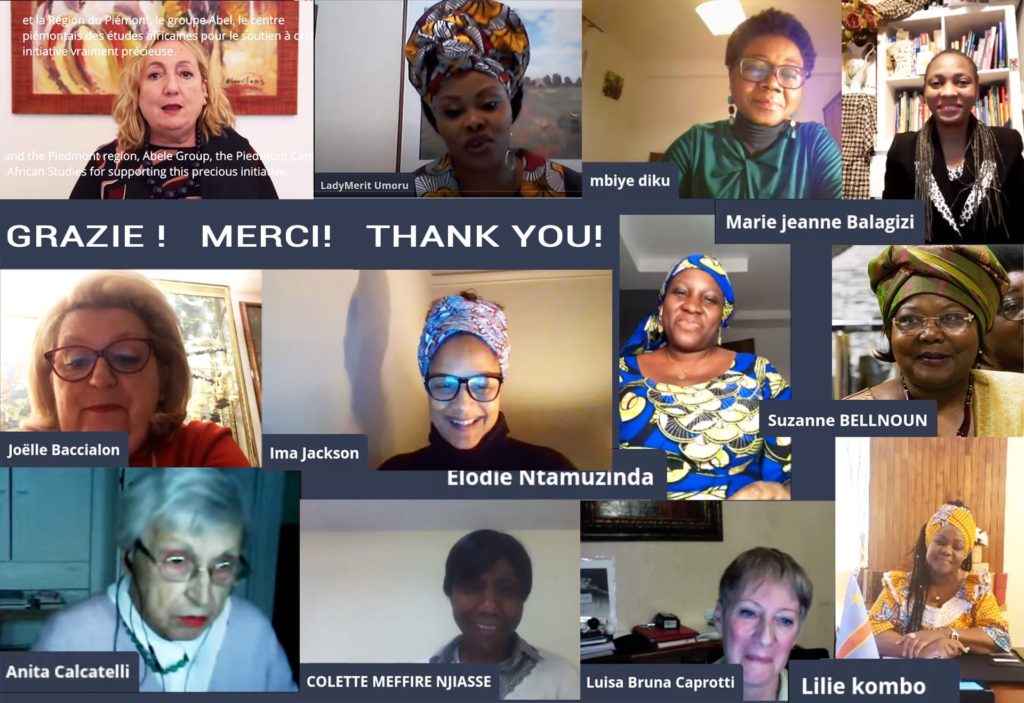Women’s rights organisations have urged the government to withdraw its proposed Immigration White Paper, warning that the plans could endanger migrant women, deepen racial inequality, and weaken protections for survivors of violence.
At a protest outside the Home Office on Wednesday, campaigners from across the violence against women and girls (VAWG) sector warned that the government’s Immigration White Paper would endanger migrant women by restricting their access to safety and justice.
The demonstration was organised by the Latin American Women’s Rights Service (LAWRS), Step Up Migrant Women (SUMW), Southall Black Sisters (SBS), Hibiscus, and the End Violence Against Women Coalition (EVAW), with support from groups across the modern slavery and migrant rights sectors.
Published last month, the Immigration White Paper proposes tighter visa routes, limits on long-term settlement, and greater data sharing between public services and immigration enforcement. Campaigners argue these measures will disproportionately harm marginalised women, discouraging survivors of abuse from seeking police or medical help for fear of deportation.
The voices of Black, minoritised and migrant women are too often excluded from decisions that affect their safety – LAWRS
They also criticised the absence of a comprehensive government strategy on violence against women and girls, warning that the proposals risk locking survivors out of vital support and leaving them more vulnerable to exploitation.
Analysis indicates that these measures will severely impact the most marginalised women. This is happening in the absence of any VAWG strategy to deliver support and safety to women, with the issue being increasingly weaponised by the far-right, who continue to scapegoat migrant communities conflating immigration with criminality.

“The voices of Black, minoritised and migrant women are too often excluded from decisions that affect their safety,” said a spokesperson for LAWRS. “Current immigration policies are intensifying the hostile environment, restricting access to essential support and leaving survivors more vulnerable than ever.” The group called for an immediate firewall between immigration enforcement and public services, so that all survivors — regardless of immigration status — can safely seek help.
Southall Black Sisters warned that the government’s plans risk pushing victims “further into cycles of abuse, homelessness and destitution.” They also urged ministers to grant indefinite leave to remain and access to public funds for victims of abuse. Hibiscus echoed those concerns, saying that “access to safety must never be conditional on immigration status,” while the End Violence Against Women Coalition said the proposals “curb women’s rights to protection, safety and support and should be scrapped.”
Last month, more than 70 organisations from across the UK signed a joint statement to the Home Secretary, Shabana Mahmood, warning that the White Paper would “further trap Black, minoritised and migrant women in abusive situations” and deny survivors access to safety and justice. Campaigners say they have not yet received a government response.
Access to safety must never be conditional on immigration status – Hibiscus
Two Members of Parliament, Carla Denyer and Apsana Begum, attended the demonstration in solidarity. Denyer accused the Labour government of “doubling down on the worst of the Conservative government’s efforts,” saying: “The proposals in the White Paper would leave people in limbo for years, worsening insecurity and putting people at risk of exploitation — and we know that women are always at the sharp end of cruel policies like this.”
Begum said the immigration system must be “rooted in compassion, not suspicion,” adding:
“The Immigration White Paper only puts migrant survivors at risk. That’s why I’m demanding that the Government scrap the White Paper and government support all survivors of abuse – this must include migrant, Black and Minority Ethnic survivors.”
The Southall Black Sisters highlighted that “Restrictive immigration policies place women at increased risk of VAWG. Women with No Recourse to Public Funds (NRPF) are three times more likely to experience domestic abuse compared to the wider population of women in the UK. Research by the Step Up Migrant Women campaign also found that the majority (62%) of migrant women surveyed had been explicitly threatened with immigration enforcement by a perpetrator if they reported domestic violence; similarly, most respondents disclosed a fear that the police would not believe them due to their immigration status.”


